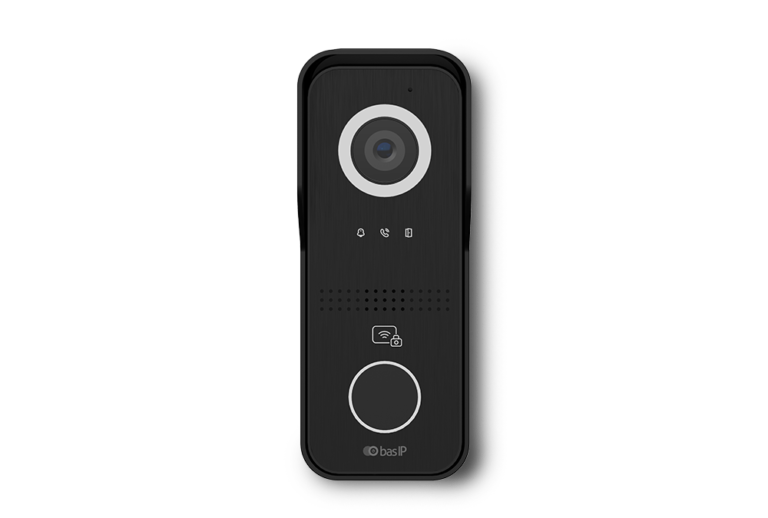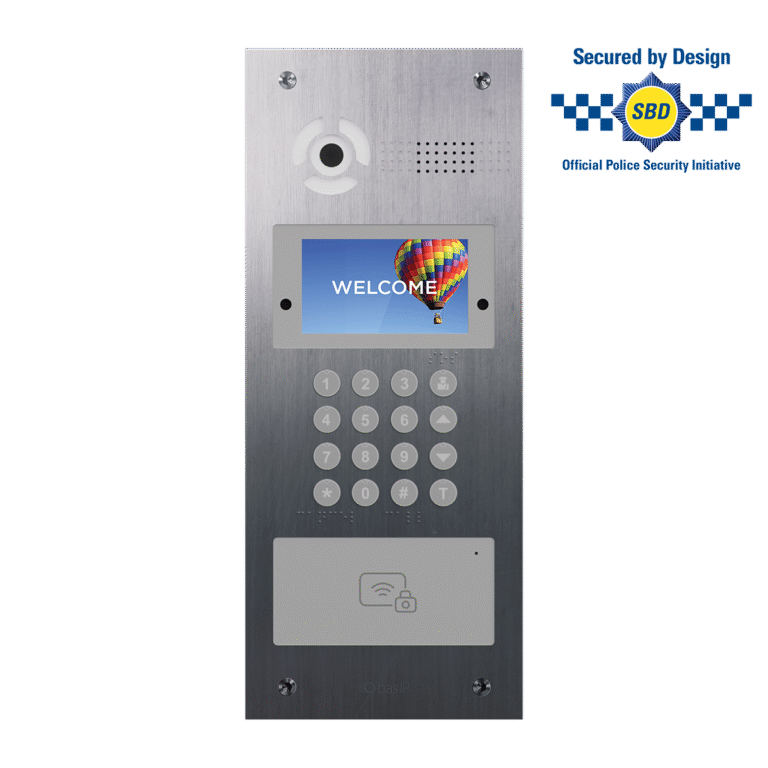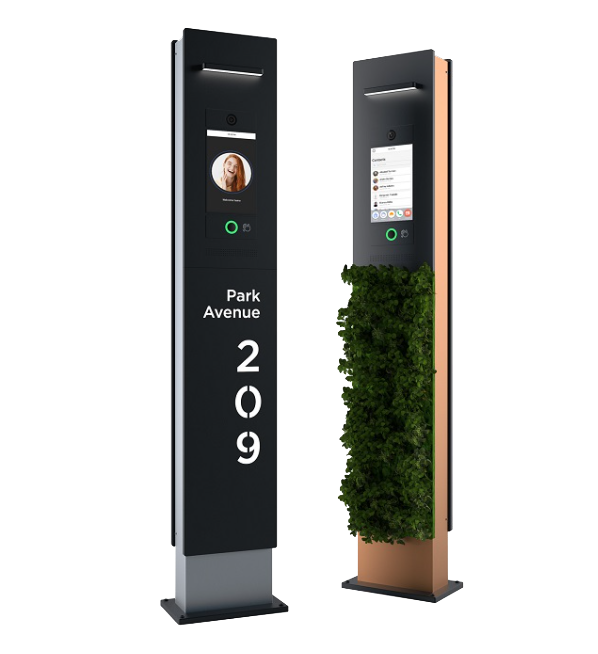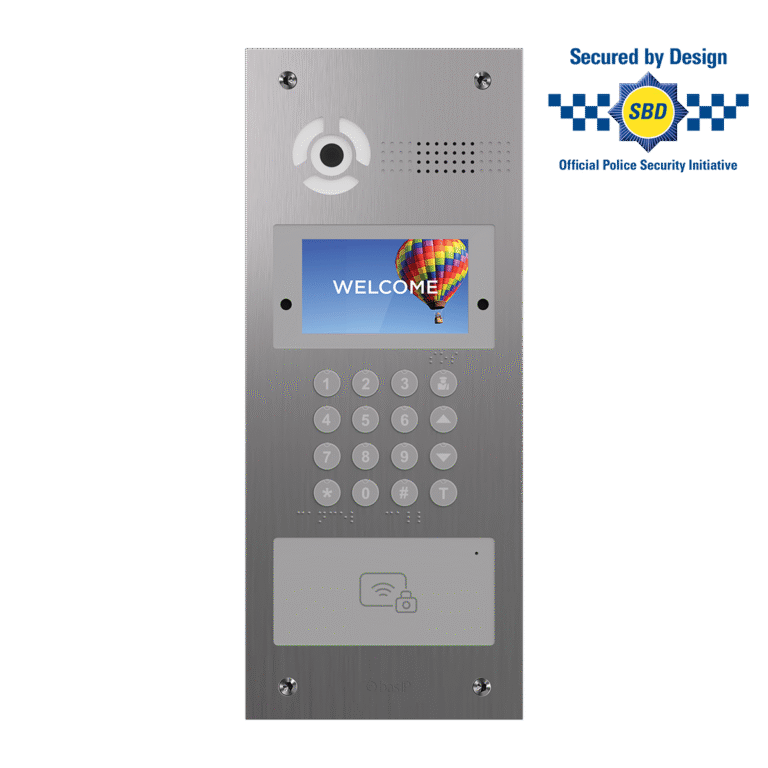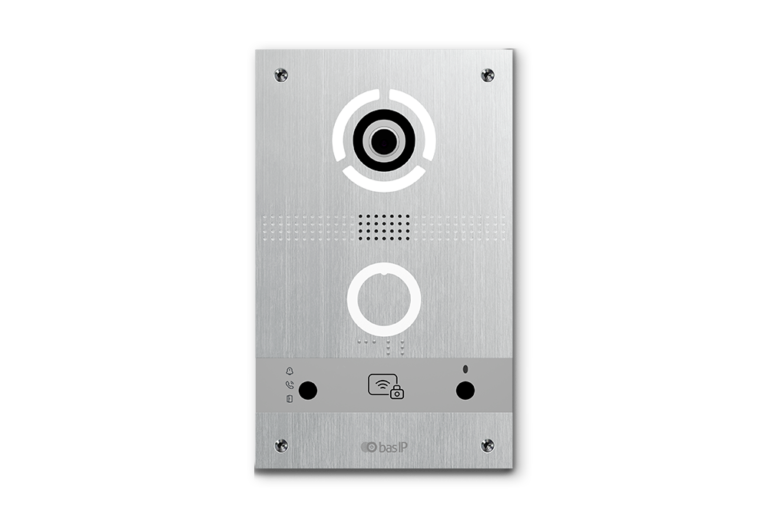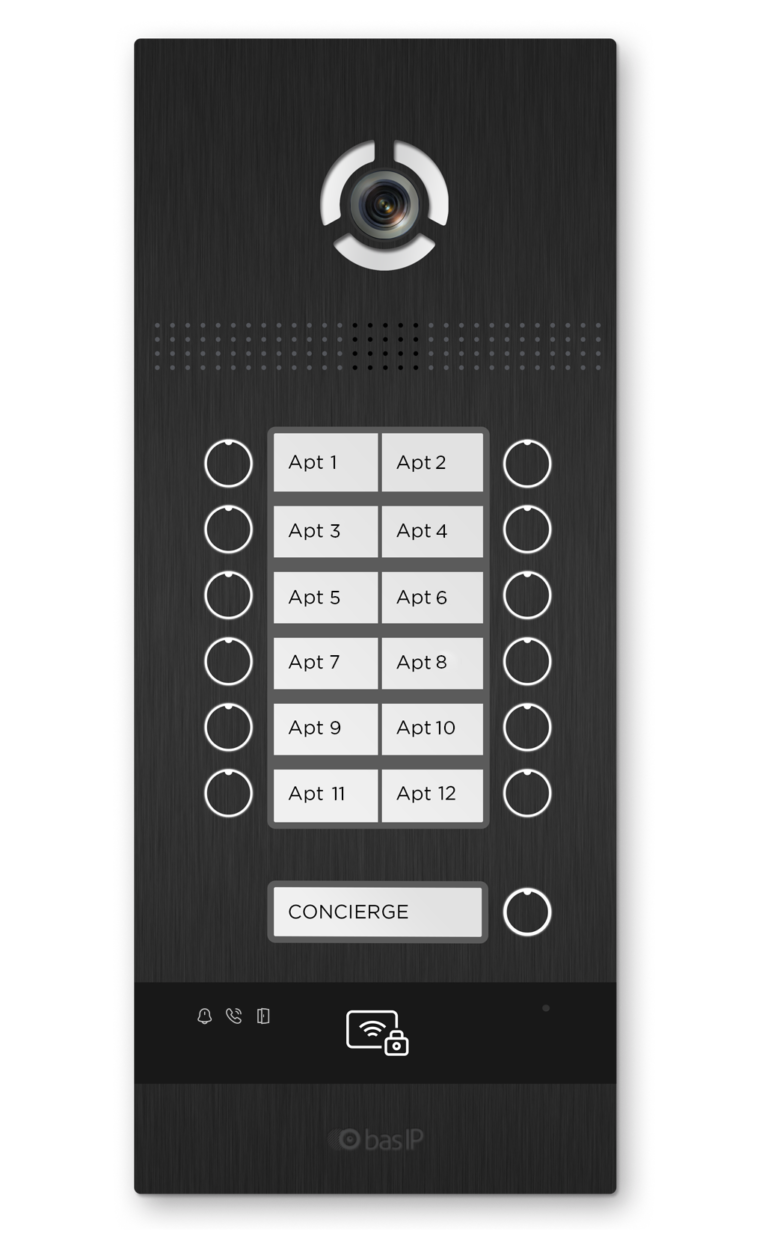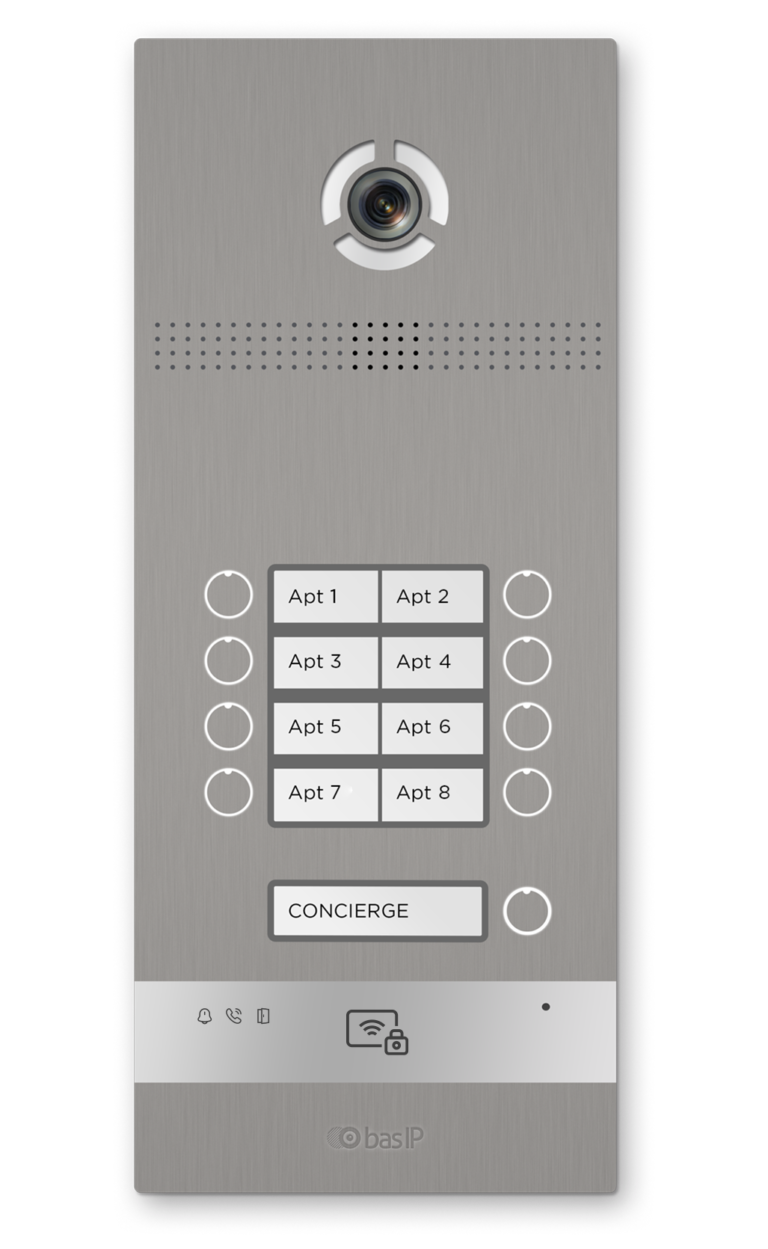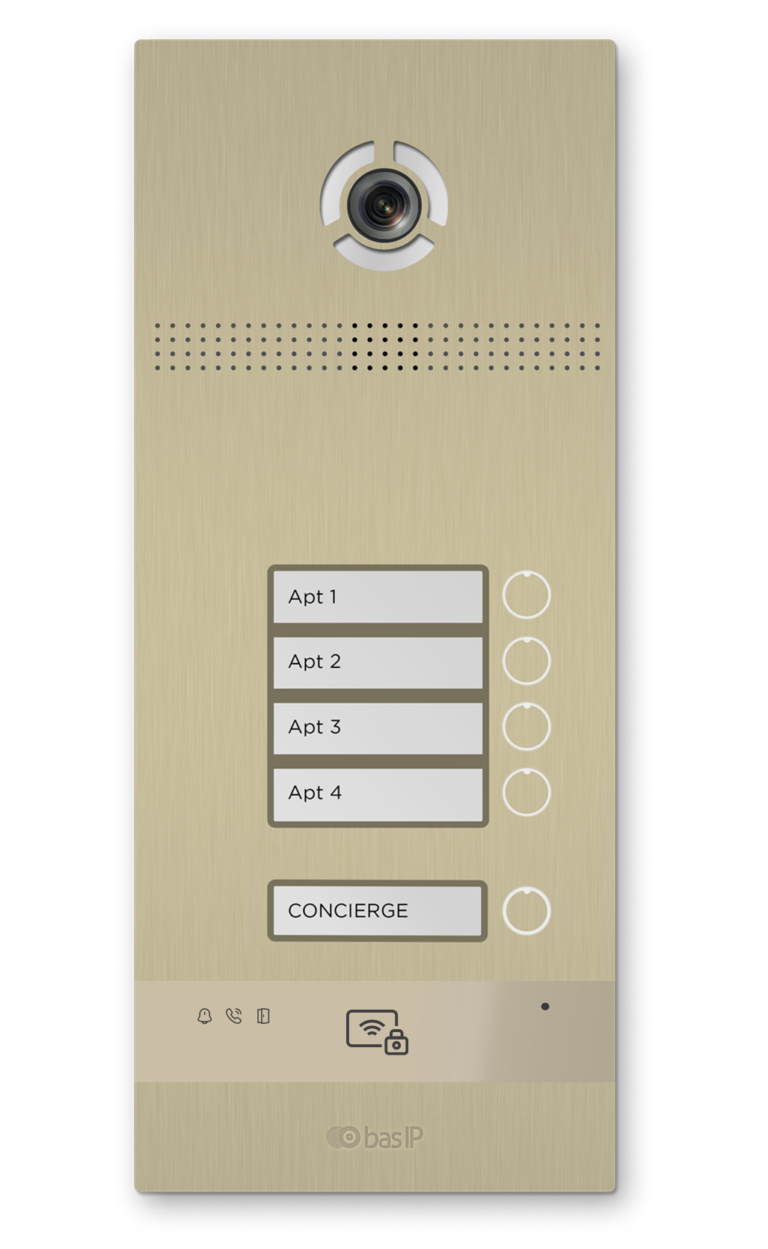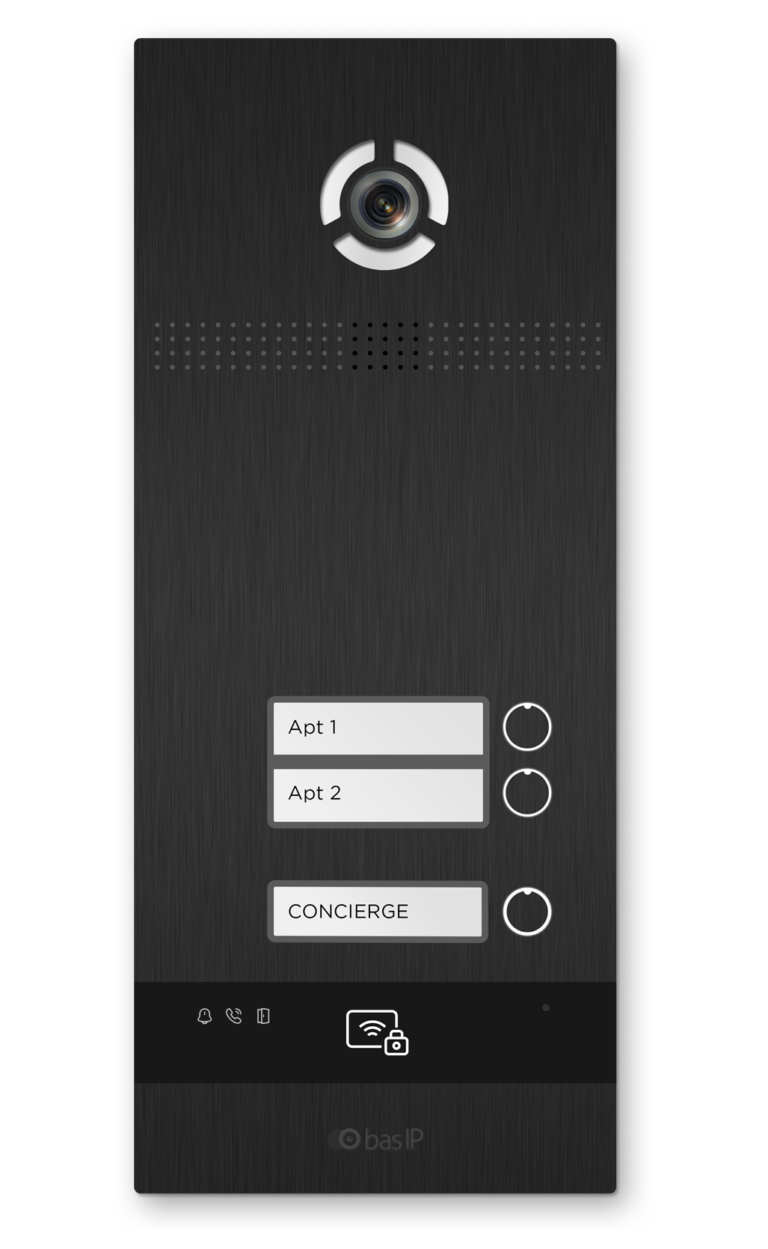Door Security Systems: Your Ultimate Guide to Safety

In an increasingly interconnected world, the importance of security cannot be overstated. One of the key aspects of this security is the protection of our homes and businesses, and at the forefront of this protection are door security systems. These systems, ranging from simple alarms to advanced IP intercoms like those offered by BAS-IP, provide a crucial line of defense against potential intruders.
Understanding Door Security Systems
Door security systems are an integral part of home and business security solutions. They provide a first line of defense against unauthorized access, offering peace of mind to property owners. To fully appreciate their value, it’s important to understand what door security systems are, the different types available, and how they work.
What are Door Security Systems?
Door security systems are devices or sets of devices designed to strengthen the security of doors, the most common entry points in a building. They aim to deter, detect, and respond to unauthorized attempts to gain access, thereby protecting the people and valuables inside.
Types of Door Security Systems
There are various types of door security systems, each offering different levels of security and convenience. Here are a few common ones:
- Traditional Lock-and-Key Systems: These are the most basic form of door security, requiring a physical key to unlock the door.
- Electronic Locks: These locks use keypads, touch screens, or card readers. Users input a code or swipe a card to unlock the door.
- Smart Locks: These are advanced locks that can be controlled remotely via a smartphone app. They may also include features like keyless entry, biometric identification, and integration with other smart home devices.
- Door Alarms: These systems trigger an alarm if the door is opened without authorization. Some may also send notifications to your phone or a security company.
- Video Doorbells: These devices have a camera and a speaker. They allow you to see who is at the door and communicate with them without opening the door.
- IP Intercoms: Devices like those offered by BAS-IP, these advanced systems allow for audio and video communication between the inside and outside of the door, and can be integrated with other security systems for enhanced protection.
How Door Security Systems Work
The working of a door security system depends on its type:
- Lock-and-Key Systems: These work by matching the unique cuts on a key with the pins inside a lock. When the key is inserted and turned, the lock opens.
- Electronic Locks: These locks work by recognizing a correct code or authorized access card. When the correct code is entered or the card is swiped, the door unlocks.
- Smart Locks: These locks connect to your home’s Wi-Fi network, allowing you to control them remotely. They may also use Bluetooth to detect when an authorized user’s smartphone is nearby, automatically unlocking the door.
- Door Alarms: These systems use sensors that trigger an alarm when the door is opened. Some systems may also have sensors to detect if a door is forced open or broken.
- Video Doorbells and IP Intercoms: These devices use cameras and speakers to allow you to see and communicate with whoever is at the door. They can connect to your Wi-Fi network, enabling you to access the video feed and talk to the person at the door from your smartphone, no matter where you are.
Understanding door security systems is the first step towards choosing the right system for your home or business. By considering the different types and how they work, you can select a system that best meets your security needs and lifestyle.
The Importance of Door Security Systems
Door security systems play a crucial role in both home and business security. According to the FBI, a burglary occurs every 22.6 seconds in the United States, with residential properties accounting for 58.3% of these incidents. Door security systems can significantly reduce these numbers by acting as a deterrent and providing an immediate response to attempted break-ins. They also play a vital role in providing peace of mind, enhancing convenience, and even increasing property value.
Deterrence Against Intruders
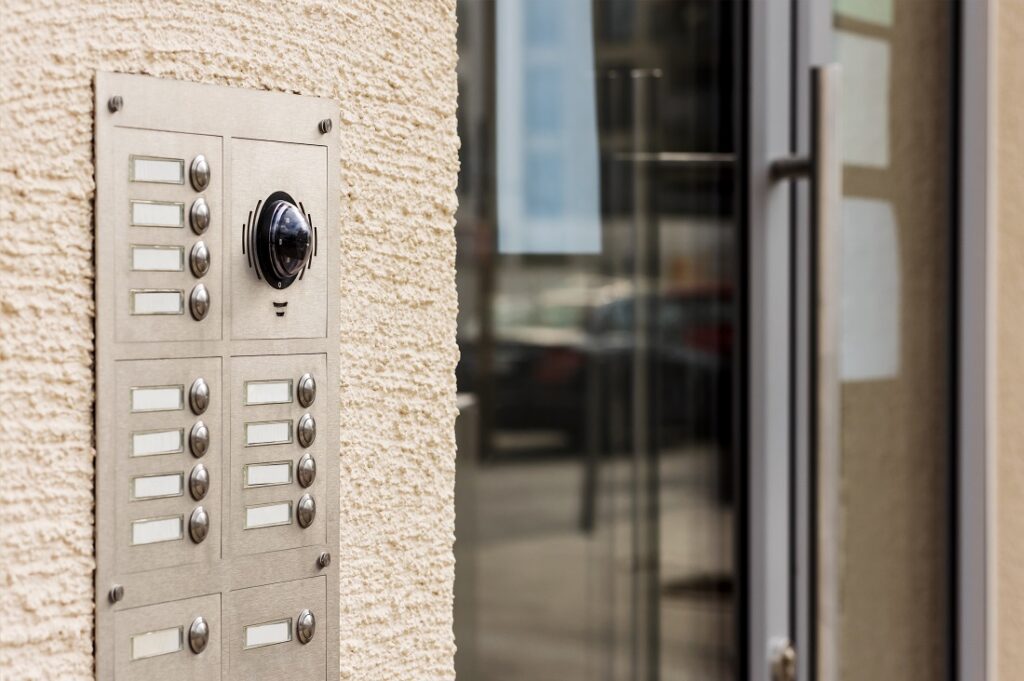
The primary function of door security systems is to deter potential intruders. When a security system is visibly installed, it sends a clear message to would-be burglars that the property is well-protected. This alone can often be enough to dissuade them from attempting a break-in.
Immediate Response to Security Breaches
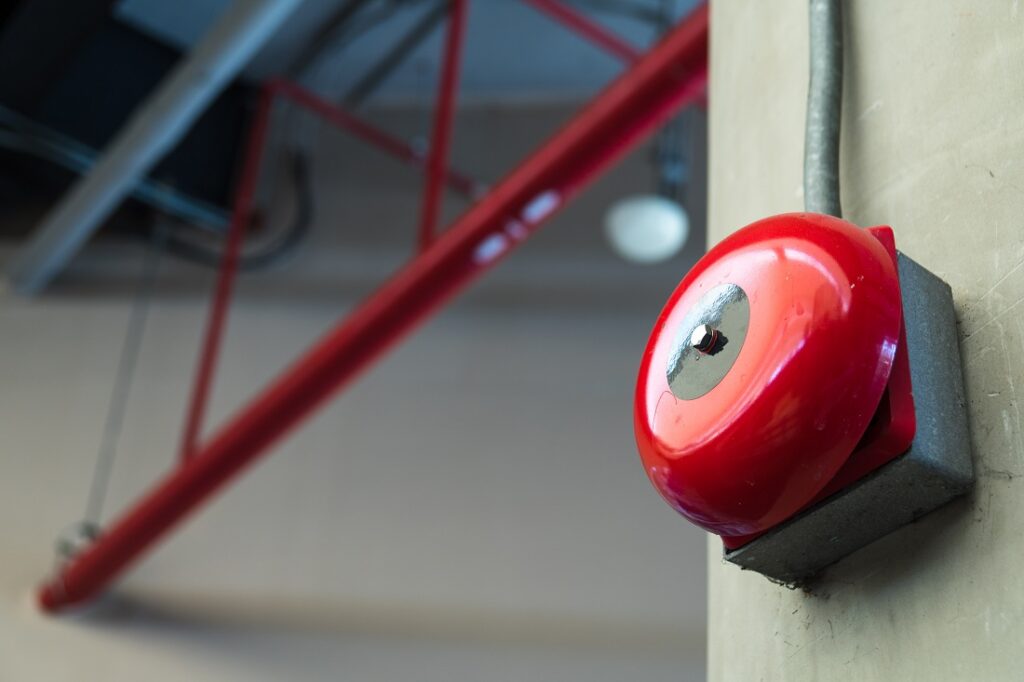
In the event of a security breach, door security systems can provide an immediate response. For instance, alarm systems trigger a loud noise when a door is forced open, alerting the occupants and potentially scaring off the intruder. More advanced systems can even notify the local authorities or a private security company.
Peace of Mind
Knowing that your home or business is protected gives you peace of mind. This is particularly important when you are away from your property, such as when you’re at work or on vacation. With a door security system in place, you can rest assured that your property is secure.
Convenience and Control
Modern door security systems offer a high level of convenience and control. For example, smart locks can be controlled remotely using a smartphone app, allowing you to lock or unlock your doors from anywhere. Some systems even offer features like keyless entry, temporary access codes for guests, and integration with other smart home devices.
Increased Property Value

Finally, having a security door system can increase the value of your property. A secure property is a valuable property, and potential buyers or renters may be willing to pay more for a home or business with a high-quality security system in place.
Door security systems are more than just a deterrent against intruders. They offer a range of benefits that can enhance your quality of life, provide peace of mind, and even boost the value of your property. Whether you’re protecting your family home or your business premises, investing in a robust door security system is a wise decision.
Security Door Systems Solutions
Door security systems serve different purposes depending on the environment in which they’re used. Schools, commercial buildings, residential properties, and retail stores each have unique security needs and challenges. Here’s a detailed guide comparing these four types of door security systems:
| Aspect | School Door Security Systems | Commercial Door Security Systems | Residential Door Security Systems | Retail Anti-Theft Door Security Systems |
|---|---|---|---|---|
| Primary Concerns | Safety of students and staff, prevention of unauthorized access, monitoring of multiple entry points | Protection of valuable assets, data security, employee safety, customer safety | Protection of family members and personal belongings, privacy, ease of use | Prevention of shoplifting, protection of merchandise, customer and employee safety |
| Common Features | Lockdown capabilities, visitor management systems, video surveillance, access control systems | Advanced access control systems, video surveillance, alarm systems, integration with fire and security systems | Smart locks, video doorbells, alarm systems, keyless entry systems | Electronic Article Surveillance (EAS) systems, video surveillance, access control systems |
| Access Control | Often use ID card systems for staff and students, visitor check-in systems for guests | May use key cards, biometric systems, or mobile access for employees, with separate protocols for visitors | Typically use keys, key codes, or biometric systems for family members, with temporary access codes for guests | Typically use EAS tags and detectors at entrances/exits, with access control systems for staff areas |
| Installation & Maintenance | Typically require professional installation and regular maintenance due to the complexity and scale of the systems | Usually require professional installation and maintenance, may also require regular compliance checks | Can often be installed by the homeowner and require minimal maintenance, though professional installation is recommended for advanced systems | Require professional installation and maintenance due to the complexity of the systems, especially EAS systems |
| Cost | Can be high due to the need for multiple systems across a large area and the importance of student safety | Can be high due to the need for advanced systems to protect valuable assets and data | Can range from affordable for basic systems to expensive for advanced systems, depending on the homeowner’s budget and needs | Can be high due to the need for advanced anti-theft systems, but these costs are often offset by the reduction in losses due to theft |
By understanding the differences between school, commercial, residential, and retail anti-theft door security systems, you can better appreciate the unique security challenges each setting presents and the solutions available to address them.
Factors to Consider When Choosing a Door Security System
Choosing the right security door system is a crucial decision that requires careful consideration. Various factors come into play, each of which can significantly impact the effectiveness and suitability of the system for your specific needs. Here are some of the key factors to consider:
| Factor | Description | Why It’s Important |
|---|---|---|
| Cost | This includes the upfront cost of the system, installation costs, and ongoing costs such as maintenance and monitoring fees. | It’s essential to choose a system that fits within your budget. However, it’s also important to consider the value that the system offers in terms of security and convenience. |
| Installation | Some systems are easy to install yourself, while others require professional installation. | DIY installation can save money, but professional installation can ensure that the system is set up correctly and working optimally. |
| Technology Used | Door security systems use various technologies, from traditional lock-and-key systems to advanced biometric systems. | The technology used can affect the system’s security level, convenience, and price. It’s important to choose a technology that meets your security needs and fits within your comfort zone in terms of usability. |
| Brand Reputation | Some brands are known for their high-quality products and excellent customer service, while others may have a less stellar reputation. | Choosing a reputable brand can give you confidence in the quality and reliability of the system, as well as the support you’ll receive if you have any issues. |
| Features | Different systems offer different features, such as remote control, notifications, integration with other smart home devices, etc. | The features offered can greatly enhance the convenience and functionality of the system. Consider what features are important to you and choose a system that offers those. |
| Security Level | The level of security provided by a system can vary significantly. Some systems offer basic protection, while others provide advanced security measures like biometric authentication. | The level of security needed will depend on your specific circumstances, such as the crime rate in your area and the value of the items in your property. |
| User Reviews | User reviews can provide valuable insights into the real-world performance and reliability of a system. | Reviews can reveal potential issues or drawbacks that aren’t apparent from the product description. They can also provide reassurance about the system’s quality and effectiveness. |
By considering these factors, you can make an informed decision and choose a door security system that offers the best protection for your home or business.
Installation and Maintenance of Door Security Systems
The installation and maintenance of door security systems are crucial aspects to consider when securing your home or business. Proper installation ensures that the system functions as intended, while regular maintenance keeps the system running smoothly and effectively over time.
Installation
The installation process varies depending on the type of door security system. Some systems, like basic alarms or certain types of smart locks, can be installed using DIY methods. These typically come with detailed instructions and require minimal tools. However, it’s important to follow the instructions carefully to ensure the system is installed correctly.
More complex systems, such as those involving wiring or integration with other home security or automation systems, may require professional installation. This ensures that the system is set up correctly and minimizes the risk of damage or improper setup. Professional installers can also provide valuable advice on the best placement of components for maximum effectiveness.
When choosing a door security system, consider your comfort level with installation. If you’re not comfortable doing it yourself, ensure you factor in the cost of professional installation.
Maintenance
Regular maintenance is crucial to keep your door security system functioning optimally. This can include tasks like:
- Battery Replacement: If your system or any of its components are battery-powered, you’ll need to replace the batteries regularly to ensure they don’t run out. Some systems provide a low-battery warning, but it’s a good idea to check them periodically.
- Software Updates: If your system is digital or smart, it may receive software updates from the manufacturer. These updates can provide new features, improve functionality, and fix bugs or security vulnerabilities. Ensure your system is set to automatically receive and install updates, or check for updates regularly.
- Physical Checks: Regularly check all components of your system to ensure they’re in good working order. This can include checking that sensors are properly aligned, locks are functioning smoothly, and cameras or other visual components are clean and unobstructed.
- Professional Servicing: For complex systems, or as part of a warranty agreement, you may need to have the system professionally serviced from time to time. This can help identify and fix potential issues before they become serious problems.
By properly installing and maintaining your door security system, you can ensure it provides reliable and effective security for your home or business for years to come.
The Future of Door Security Systems
As technology continues to evolve, so too does the future of door security systems. The advancements in artificial intelligence (AI), the Internet of Things (IoT), and other technologies promise to revolutionize the way we secure our homes and businesses. Here’s a glimpse into what the future might hold:
Integration of AI and IoT
AI and IoT are set to play a significant role in the future of door security systems. AI can be used to analyze patterns and detect unusual activity, providing a more proactive approach to security. For instance, AI could identify if a door is being tampered with based on subtle visual or auditory cues, even before the intruder manages to break in.
IoT, on the other hand, allows for the integration of door security systems with other devices in a smart home or business. This could mean your door locks automatically when your smart security system detects that you’ve left the building, or your lights turn on when your video doorbell detects someone at the door.
Advanced Biometric Systems

Biometric systems, such as fingerprint scanners and facial recognition technology, are becoming increasingly common in door security systems. These systems offer a high level of security as they rely on unique biological characteristics, which are extremely difficult to replicate.
In the future, we can expect to see even more advanced biometric systems. For example, iris recognition technology, which is currently used in high-security facilities, may become more affordable and widespread. We might also see the development of new types of biometric technology, such as vein pattern recognition.
More User-Friendly Systems
As door security systems become more advanced, there’s also a trend towards making them more user-friendly. This includes simpler installation processes, easier management through smartphone apps, and more intuitive user interfaces.
In the future, we might see door security systems that can be set up with just a few taps on a smartphone, or systems that use AI to adapt to your habits and preferences, making them easier and more convenient to use.
Greater Emphasis on Privacy
As door security systems become increasingly connected and advanced, there’s also a growing concern about privacy. Future systems will need to balance the need for security with the need to protect users’ privacy. This could involve advanced encryption technologies, privacy-focused design, and strong regulations.
In conclusion, the future of door security systems is exciting and promising. With advancements in technology, we can expect to see systems that are not only more secure but also more convenient and respectful of our privacy. Whether it’s AI-powered detection, advanced biometric systems, or privacy-focused design, the future of door security systems looks bright.
Conclusion
door security systems are an essential component of our daily lives, providing protection and peace of mind for homes, businesses, schools, and retail establishments. They serve as the first line of defense against unauthorized access, ensuring the safety of people and the security of valuable assets.
The choice of a door security system depends on various factors, including the specific needs of the environment, the level of security required, and the budget available. From traditional lock-and-key systems to advanced biometric systems, there is a wide range of options to suit different needs.
As technology continues to evolve, we can expect door security systems to become even more effective and user-friendly. The integration of AI and IoT, the development of advanced biometric systems, and the increasing emphasis on user privacy are just some of the trends shaping the future of door security systems.
Whether you’re securing a home, a commercial building, a school, or a retail store, investing in a robust door security system is a wise decision. It not only deters potential intruders but also provides a sense of security and peace of mind. As we move forward, the importance of door security systems in our lives will only continue to grow.
